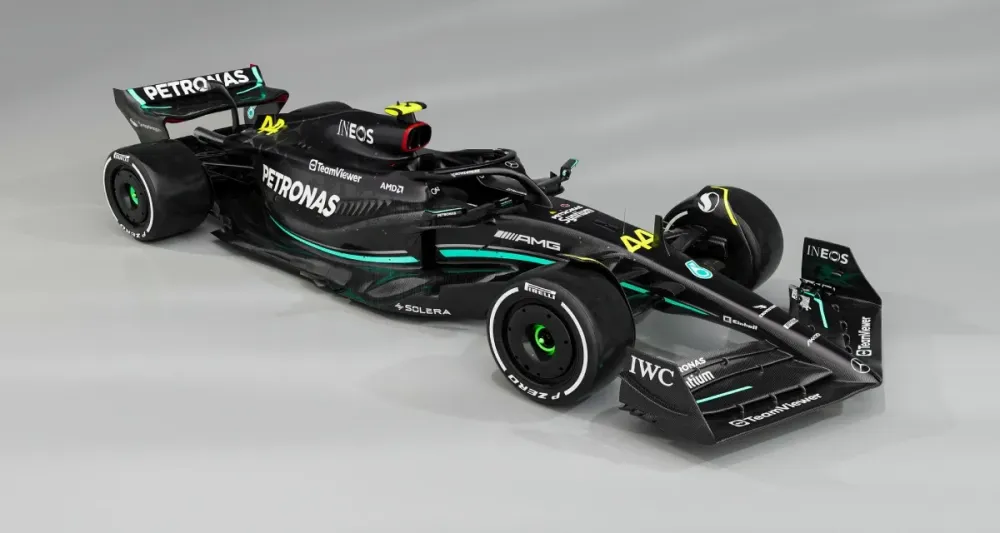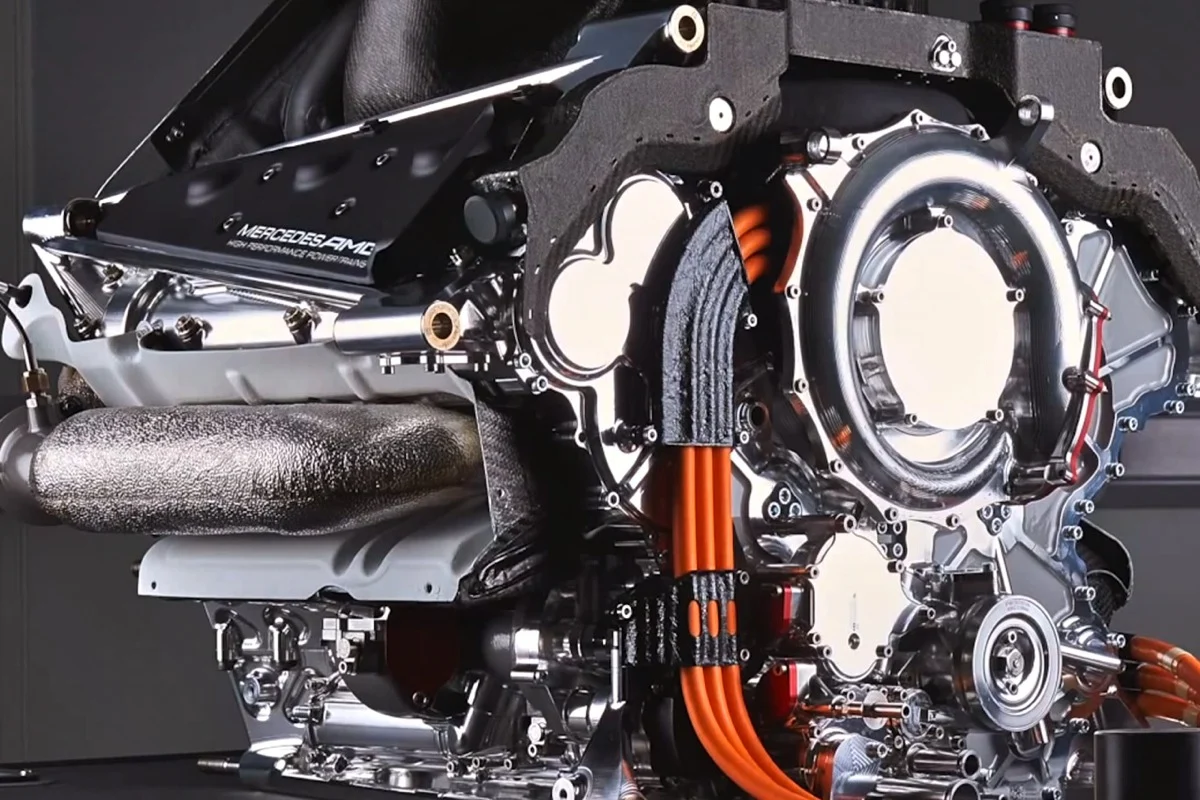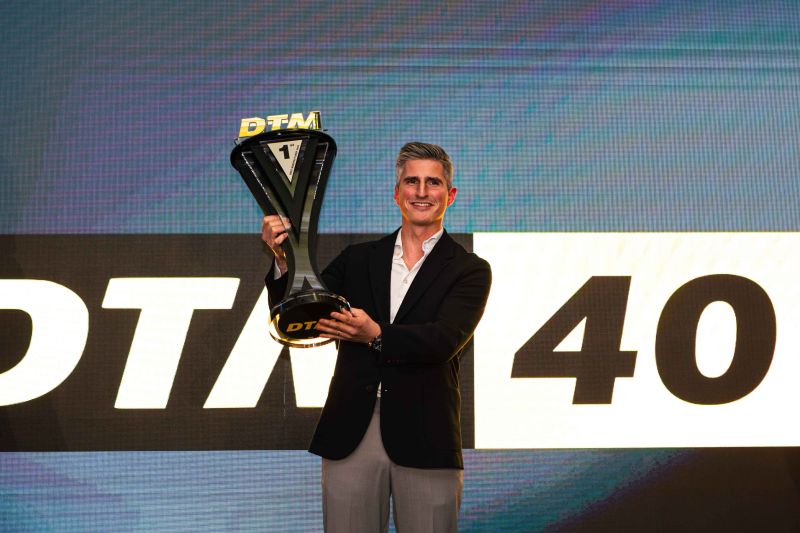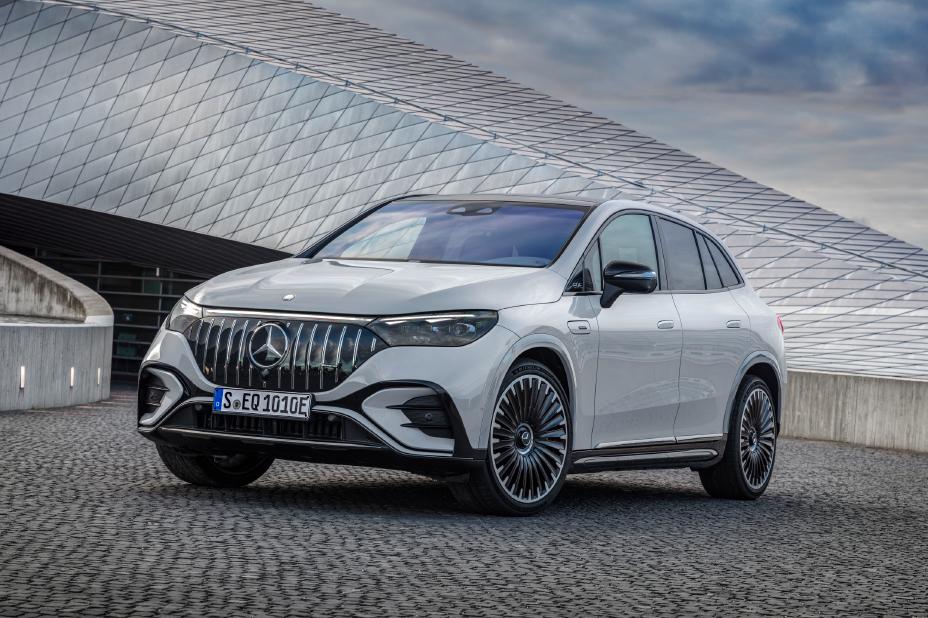
 One close look at a Mercedes-Benz Formula 1 car and it can be difficult to see how such a specialized vehicle can have any relationship to any model found in the Mercedes-Benz of Plano showroom. After all, Mercedes-Benz vehicles are expected to carry multiple people in not just comfort but luxury. They must be efficient, safe, and operable without any special training, and they must enable the driver to have confidence in a wide variety of conditions. The F1 program, on the other hand, will spend millions upon millions just to shave a fraction of a second off a lap time. Still underneath both programs is engineering. Creative, effective, and reliable engineering can bring victories both on the track and highway.
One close look at a Mercedes-Benz Formula 1 car and it can be difficult to see how such a specialized vehicle can have any relationship to any model found in the Mercedes-Benz of Plano showroom. After all, Mercedes-Benz vehicles are expected to carry multiple people in not just comfort but luxury. They must be efficient, safe, and operable without any special training, and they must enable the driver to have confidence in a wide variety of conditions. The F1 program, on the other hand, will spend millions upon millions just to shave a fraction of a second off a lap time. Still underneath both programs is engineering. Creative, effective, and reliable engineering can bring victories both on the track and highway.
Adam Allsopp is the director of the Advanced Technology division of Mercedes AMG® High Performance Powertrains (HPP), where much of the development for F1 engines occurs. He is confident that the current innovation found in F1 hybrid powertrains will eventually be incorporated into Mercedes-Benz EVs and hybrids.
HPP powertrains have claimed 21 world championships over the past 30 years, including seven drivers’ titles for Lewis Hamilton and eight F1 Constructors’ Championships for the Mercedes-AMG® F1 team. For the past decade, hybrid racing powertrains have been involved. Allsopp was the Engineering Director of the team that developed the G-Series hybrid powertrain, which has been in Mercedes F1 vehicles since 2014. He also headed the program to bring that powertrain to the streets in the AMG® One Hypercar ®.
 Regarding applying F1 technology to Mercedes-Benz passenger cars and SUVs, Allsopp quickly points out that it is not a matter of taking components from the race cars and putting them into production cars. “It’s not that binary. It’s more nuanced. Formula 1 lets us explore the art of the possible. We learn about the absolute limits of certain technologies.” He later adds: “It’s not about replacing the advanced engineering work (at Mercedes-Benz R&D). We can focus on specific elements, and that’s where we bring that difference.”
Regarding applying F1 technology to Mercedes-Benz passenger cars and SUVs, Allsopp quickly points out that it is not a matter of taking components from the race cars and putting them into production cars. “It’s not that binary. It’s more nuanced. Formula 1 lets us explore the art of the possible. We learn about the absolute limits of certain technologies.” He later adds: “It’s not about replacing the advanced engineering work (at Mercedes-Benz R&D). We can focus on specific elements, and that’s where we bring that difference.”
He stresses that energy efficiency is a common goal in hybrid technology, both for the track and the highway. “We want efficiency in racing because we are fuel-flow and energy-limited, and we want efficiency in road cars so that we can get [driving] range.”
 One area he is working on in which he sees potential for improving EV and hybrid powertrains regards inverter and power-electronics technologies. Inverters change Direct Current (DC) into Alternating Current (AC). While most electronic uses, including electric motors, use AC, batteries can only take in and put out DC, so an inverter is necessary. A sine wave often represents AC, the recognizable geometric waveform that oscillates up and down. Thus far, DC to AC conversion produces an imperfect sine wave. Improving that sine wave is a challenge analogous to creating the perfect burn in a combustion chamber, a process that has involved a century of refining piston head shapes and valve location, shape timing, fuel injection systems, spark plug technology, and so on. Both have similar goals of reducing energy loss.
One area he is working on in which he sees potential for improving EV and hybrid powertrains regards inverter and power-electronics technologies. Inverters change Direct Current (DC) into Alternating Current (AC). While most electronic uses, including electric motors, use AC, batteries can only take in and put out DC, so an inverter is necessary. A sine wave often represents AC, the recognizable geometric waveform that oscillates up and down. Thus far, DC to AC conversion produces an imperfect sine wave. Improving that sine wave is a challenge analogous to creating the perfect burn in a combustion chamber, a process that has involved a century of refining piston head shapes and valve location, shape timing, fuel injection systems, spark plug technology, and so on. Both have similar goals of reducing energy loss.
A better sine wave means reduced loss in power going to the motors and other power returned to the battery through regeneration. “There will be a far greater rate of change in terms of cost, capability, and size in inverters than e-motors. The cost of power electronics will come down, the size will come down, and they will be a key driver in increasing EV range,” says Allsopp.
 It is another reminder that when it comes to EV powertrains, we are likely where the internal combustion engine was a century ago. Just as the last decade saw racing technologies such as multi-valve heads, fuel injection, variable valve timing, and countless others travel from the track to the street, we can expect the same with electrified powertrains. With Allsopp and his team helping Mercedes-Benz lead the way.
It is another reminder that when it comes to EV powertrains, we are likely where the internal combustion engine was a century ago. Just as the last decade saw racing technologies such as multi-valve heads, fuel injection, variable valve timing, and countless others travel from the track to the street, we can expect the same with electrified powertrains. With Allsopp and his team helping Mercedes-Benz lead the way.
It is also a reminder that if you are looking for the finest automotive engineering in the industry, you are likely to find it in Mercedes-Benz EQ sedans and SUVs. You will also find more of it at Mercedes-Benz of Plano than anywhere else in North Texas.
 AdChoices
AdChoices